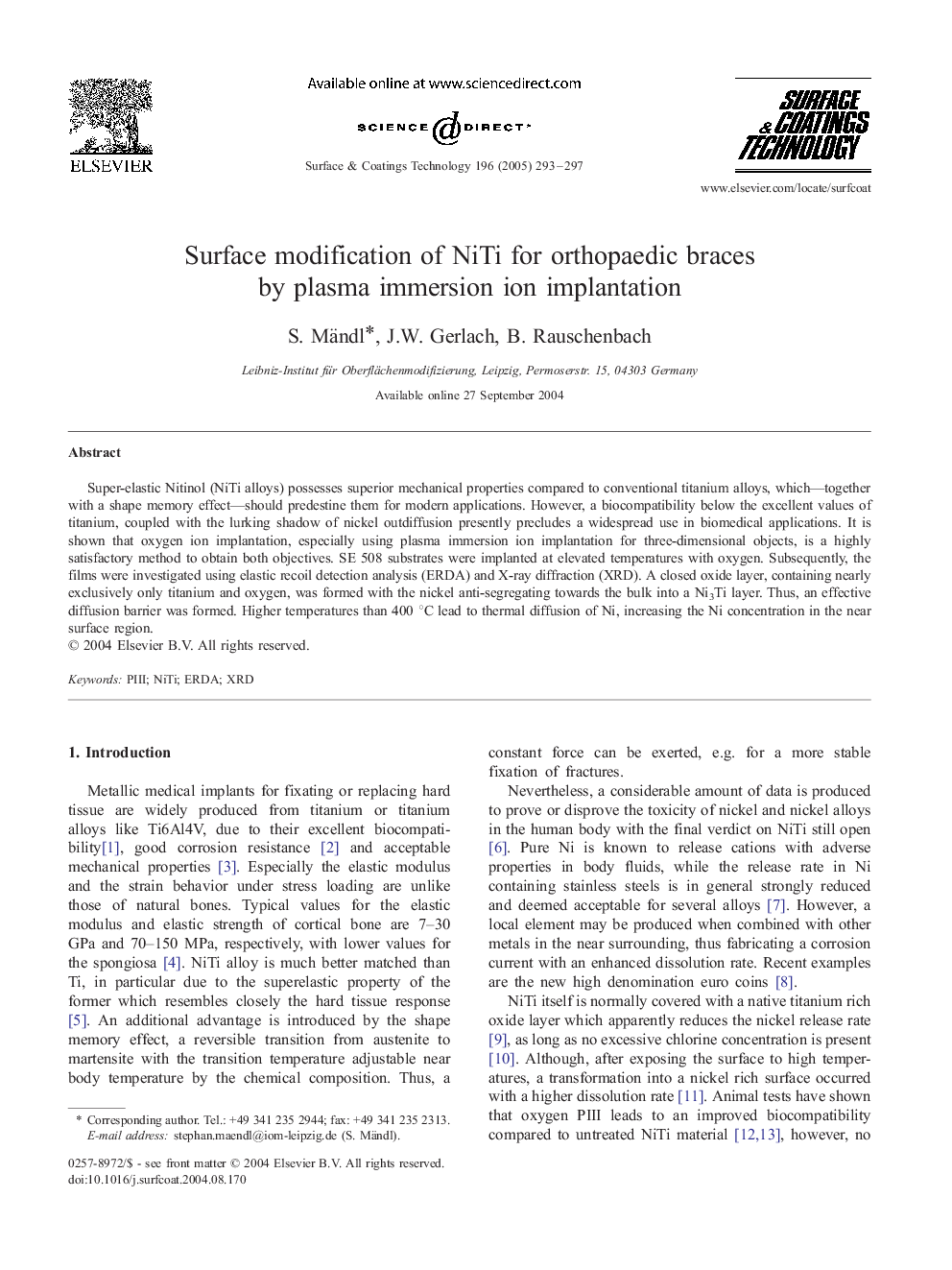| Article ID | Journal | Published Year | Pages | File Type |
|---|---|---|---|---|
| 9809713 | Surface and Coatings Technology | 2005 | 5 Pages |
Abstract
Super-elastic Nitinol (NiTi alloys) possesses superior mechanical properties compared to conventional titanium alloys, which-together with a shape memory effect-should predestine them for modern applications. However, a biocompatibility below the excellent values of titanium, coupled with the lurking shadow of nickel outdiffusion presently precludes a widespread use in biomedical applications. It is shown that oxygen ion implantation, especially using plasma immersion ion implantation for three-dimensional objects, is a highly satisfactory method to obtain both objectives. SE 508 substrates were implanted at elevated temperatures with oxygen. Subsequently, the films were investigated using elastic recoil detection analysis (ERDA) and X-ray diffraction (XRD). A closed oxide layer, containing nearly exclusively only titanium and oxygen, was formed with the nickel anti-segregating towards the bulk into a Ni3Ti layer. Thus, an effective diffusion barrier was formed. Higher temperatures than 400 °C lead to thermal diffusion of Ni, increasing the Ni concentration in the near surface region.
Related Topics
Physical Sciences and Engineering
Materials Science
Nanotechnology
Authors
S. Mändl, J.W. Gerlach, B. Rauschenbach,
